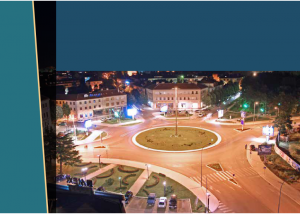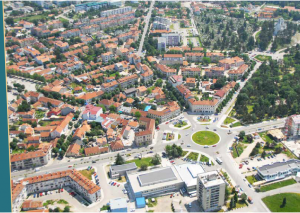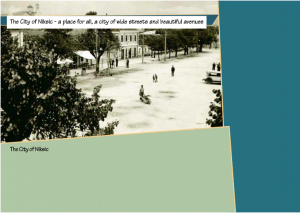Welcome to Niksic
Welcome to Niksic
The City of Niksic is situated at a crossroads of the East and the West and is an unusual mixture of the modern and the traditional. It is the second largest city in Montenegro in terms of population (72,443) and the largest municipality with an area of 2065 km2, comprising 15% of the total country’s area. The city lies at 630 m above sea level. Good transport links with neighbouring countries and proximity to the most important tourist destinations in Montenegro (an hour’s drive to the Adriatic Coast or the ski resort of Zabljak) play a vital role in its development.
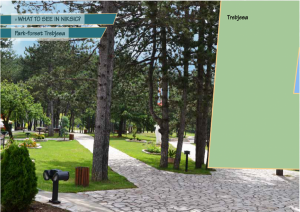
Trebjesa is a favourite city spot with nature which simply fascinates. This is a paradise for couples, with trails for sportsmen and people looking for recreation, a nook for pensioners and the green lungs of the city. The hotel on the hill top is an excellent observation point which offers the most beautiful view of the city. At the foot of the hill there are tennis courts, a sports arena, a martial arts hall, football pitch, the “Trim” sports facility, the“Vito Nikolic” promenade and the city park.
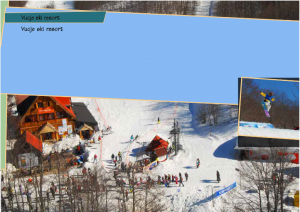
Vucje ski resort looks magical covered in snow, but its beauty is evident throughout the year – you will be blinded by a richness of beautiful colours and unforgettable landscapes. The ski resort is around 20 kilometres from the city of Niksic and is located at 1300 m above sea level. It comprises a mountain lodge-motel, a restaurant and a cafe. Recreational athletes and sportspeople can take advantage of four ski slopes, areas such as Morakovo, Krnovo, Vojnik and other regions towards Mount Durmitor suitable for winter sports, hiking and mountain biking.
In summer, Vucje is a favourite getaway spot hosting various events and a starting point for various competitions and trips, while in wintertime the resort welcomes all lovers of winter sports.
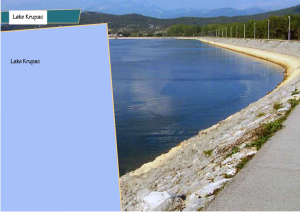
The City of Niksic is well-known for its “sea” – the way the locals usually refer to artificial Lake Krupac.
Lake Krupac is located 5.5 km west of the city and is one of the city’s most beautiful getaway spots. The lake is located at an altitude of 600 m above sea level, it is 2.5 km long and 2.8 km wide. Clear water, plenty of fish, a safe and equipped beach, a spacious field on one side and picturesque cliffs on the other make the lake an attractive spot, suitable for the future development of a sports and recreation complex.
Lake Krupac boasts a restaurant, a beach with accompanying facilities and a promenade along the lake dam, so in summer the resort attracts a large number of tourists. It is here that many competitions, musical events, water sports and fishing events are organised… you will not remain indifferent when visiting Lake Krupac.
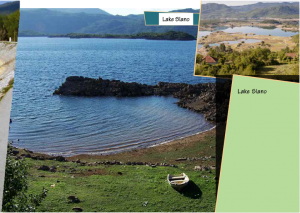
Lake Slano has an area of 9 km² and is located in the western part of the field of Niksic, surrounded by medium-sized and high mountains. The lake’s shore line is quite irregular and has a number of islands of which the largest is Visa Island. This artificial lake was created in 1950 for the purposes of Perucica hydroelectric plant.
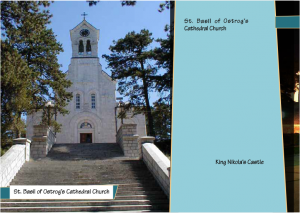
St. Basil of Ostrog’s Cathedral Church was built in the nineteenth century and was designed by the Russian architect Mihailo Mihailovich Preobrazenski. The major funding for its construction was provided by the Russian Orthodox Church and the Romanov royal family. This magnificent monument was erected in honour of the fallen heroes of Montenegro and Herzegovina who perished in the wars from 1875 to 1880. The magnificent sacral building which dominates the panorama of the city of Niksic sits on Peter’s knoll to the west of Trebjesa hill. King Nikola’s Castle is situated on its southern flank St. Basil of Ostrog’s Cathedral Church and together they form the city’s most dominant urban unit.
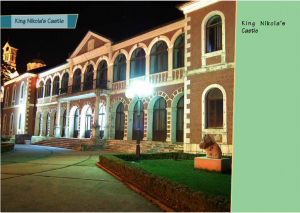
King Nikola’ s Castle, accessed by walking through a lovely park, is one of the most valuable cultural monuments in the city of Niksic and Montenegro. For many years this building has been a home to the City’s museum, library, gallery and archives. It is particularly magical in winter when snow-covered – it resembles a fairy tale castle.
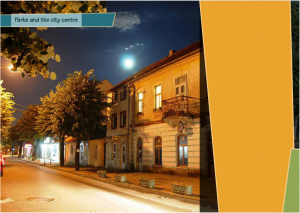
Downtown Niksic is a favourite gathering place for the locals and the visitors alike. It is always teeming with young people, it is full of energy and life.
The city centre is dominated by a spacious square with numerous bars, restaurants and shops.
The park in the city centre, located next to King Nikola’s Castle is a true green oasis. The paved walking paths, benches, children’s play area, fountains and the nearby cafes make it one of the favourite and most frequented spots in town.
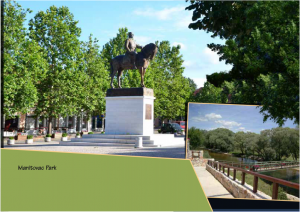
Manitovac Park is 1.5 km away from the city centre and it lies at the bank of the River Zeta. Its beauty and its offer attract visitors of various age groups. The park has a beautiful 25-metre-long bridge, which connects the two river sides, perfectly designed to fit the surroundings.
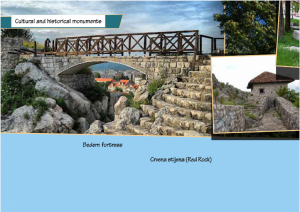
Niksic is a city with a rich cultural and historical heritage. There are a number of archaeological sites and cultural and historical monuments in and around the city, of which the following are the most important:
Bedem fortress – during the renovation of the medieval city, the city was mostly built inside Bedem fortification and was named the Upper Onogost. The fortification has for centuries been a gathering place and a favourite location for hosting cultural events. Crvena stijena (Red Rock) is an archaeological site located in the village of Petrovici discovered accidentally during excavation works.
Its research revealed 31 cultural layers and material remains from the prehistoric era. Crvena stijena is potentially one of the most prominent archaeological sites in Europe.
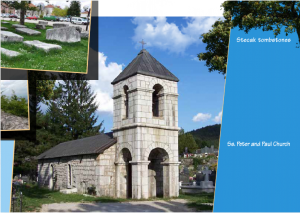
Stecak tombstones date back to the thirteenth, fourteenth and fifteenth centuries and are related to the development of the religious Bogomil movement. This term used to be linked to erect stone monuments and the name was later used for the old funerary monuments made of large stone slabs.
Ss. Peter and Paul Church is the oldest church in the City of Niksic. It is famous for its frescoes of the two saints. The fresco paintings in this temple are some of the last painted in the Byzantine tradition.
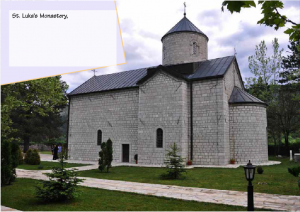
St. Luka’s Monastery, known as Zupa monastery, was constructed in 1492. It was built by the locals, immediately after their falling under Ottoman rule. Towards the end of the twentieth century, it became a women’s monastery and is nowadays well-known for its craftwork.
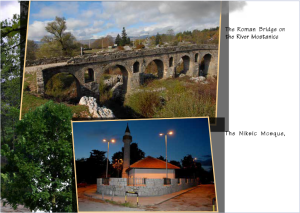
The Roman Bridge on the River Mostanica is located on the old road from Niksic, via Grahovo, to Trebinje. It was built in the third century AD and is one of the oldest bridges in Montenegro.
The Niksic Mosque, constructed in 1804, is the only one out of the four city mosques to have survived the time of the Turkish Niksic.
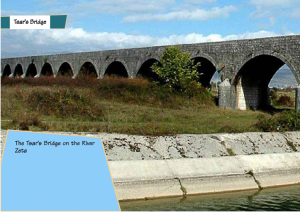
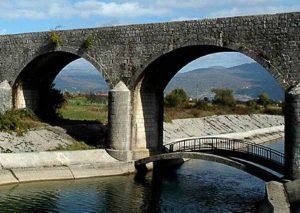
The Tsar’s Bridge on the River Zeta is an unusual bridge which consists of eighteen arches, almost the only of its kind in the world with this number of arches. It is 269 metres long and named after Tsar Alexander III, who had supported its construction.
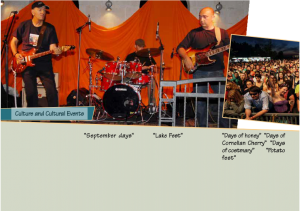
he City of Niksic has a rich cultural and historical heritage and is well-known for its cultural events such as the International Chamber Music Festival, the International Festival of the Actor and the Inter- national Guitar Festival.
“September days” is a traditional event organised by the city government commemorating the city’s liberation day and offering a number of events related to culture, sports, tourism and ecology.
“Lake Fest” is a famous music festival taking place at Lake Krupac every year in July. This is a festival of rock music visited by tens of thousands of music lovers and admirers of work of the most popular rock musicians.
“Days of honey”, “Days of Cornelian Cherry”, “Days of costmary” and “Potato fest” are some of the events which attract a large number of visitors.
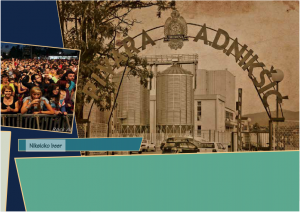
Niksic is well-known for Niksicko beer.
As the first and the only of its kind in Montenegro, Niksic Brewing Company was founded in 1896. The brewery received its first major international recognition in 1932 in Paris and has since won over 70 prizes at major national and inter- national competitions. The name of Niksicko beer has long crossed the borders of the former and the current states and the beer has become the most recognizable Montenegrin brand.


